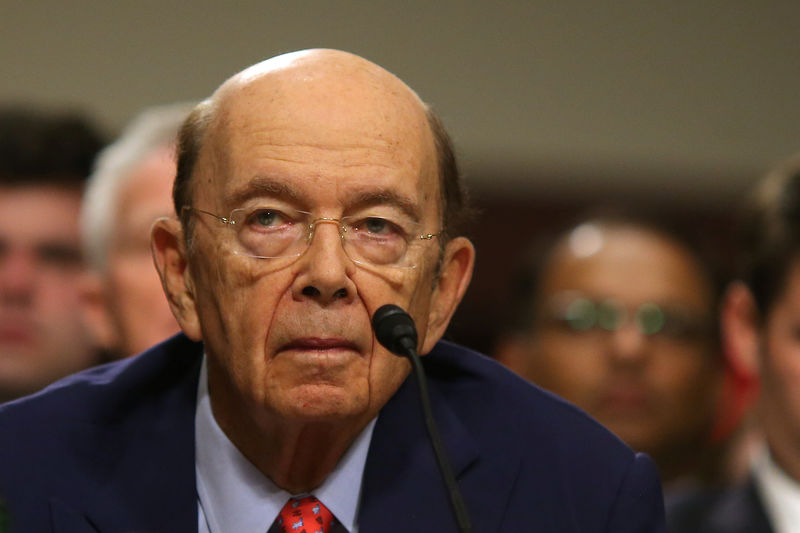By David Lawder
WASHINGTON, June 9 (Reuters) - U.S. Commerce Secretary Wilbur Ross is likely to impose a new sugar trade deal with Mexico even if final revisions to it fail to win support from the U.S. industry, trade lawyers and experts say.
After announcing a deal this week that would dramatically cut the amount of refined sugar that Mexico ships to the United States, officials from the two countries are working with their industries on final language that would govern its operation.
At issue is a new right of first refusal granted to Mexico to supply all U.S. sugar needs not met by domestic suppliers or other foreign quota holders.
A coalition of American sugar cane and beet farmers and a major refiner want a more explicit guarantee that the U.S. Department of Agriculture, not Mexican producers, will dictate what type of sugar fills that gap. They are worried that a flood of refined sugar will pour in, rather than the raw sugar needed to keep U.S. mills running.
The final sticking point stands in the way of resolving a years-long dispute over Mexican access to the highly regulated U.S. sugar market, which is protected by a complex web of subsidies and rationed quotas for foreign producers.
The sugar industry is known for its sway in Washington. But its point of view on Mexican imports is not shared by sugar users such as confectioners and soda makers. Trump administration wants to clear away the sugar dispute and a lumber trade row with Canada before starting full-scale negotiations to revise the North American Free Trade Agreement.
An industry rarely objects to a government-negotiated settlement of its anti-dumping case, and U.S. sugar producers could do little to stop the Commerce Department from implementing a final deal after a two-week comment period, said Seattle-based trade lawyer William Perry, who previously worked at Commerce and the U.S. International Trade Commission.
While the industry could ask the International Trade Commission to overturn the settlement that suspends anti-dumping and anti-subsidy duty orders issued in 2014, chances for success look slim. The panel in 2015 rejected a challenge by two sugar refiners to the previous U.S.-Mexico pact.
"Petitioners are never entirely happy with suspension agreements like this," Perry said. "They would rather have anti-dumping and countervailing duty orders with rates high enough to shut out imports."
A Commerce spokesman said that Ross hoped the U.S. sugar industry would ultimately endorse the final agreement.
Gary Hufbauer, a trade expert at the Peterson Institute for International Economics, said the administration was probably willing to compromise on some industry-specific concerns to help reach its larger NAFTA goals of reducing U.S. trade deficits.
The U.S. sugar industry must probably present evidence of new Mexican dumping before going back to Commerce for more changes to the deal, said Daniel Pearson (LON:PSON), a senior fellow of the libertarian Cato Institute and former International Trade Commission chairman.
"They would do well to take this agreement and run with it and see how it works," Pearson said, noting that it raises prices and keeps U.S. refiners well-supplied with raw sugar.
Mexico made major concessions to maintain its access to the lucrative U.S. market, agreeing to ship no less than 70 percent of its quota volume as raw sugar to U.S. refineries. It gave ground on nearly all of the U.S. producers' demands. Sugar Alliance spokesman Phillip Hayes said the final hurdle should be easy to address by making clear that the USDA, not Mexico, can dictate the type and purity level of any additional imports.
But Juan Cortina, head of Mexico's main sugar trade group, said there was no problem with the language because any additional needs would filled with raw sugar, as Mexican producers would have to keep higher inventories of that grade.
